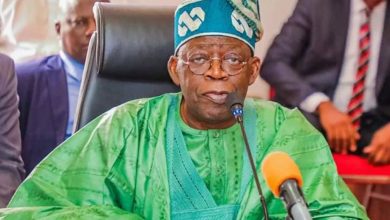NESG v CBN:Inside The Policy Room

NESG/CBN and Environmental Scanning
The NESG’s concerns about the direction of the Nigerian economy is not without merit. With the presence of external shocks that the government has no control over, local economists have naturally searched for policy tool remedies, and as things stand few if any has been found. The simultaneous rise in the inflation rate (13.2% in August 2020) and unemployment (27.1% in Q2 2020) on the back of renewed COVID-19 fears, may lead to ineffective monetary policy. The CBN recently cut the monetary policy rate (MPR) by 100 basis points from the previous 12.5% between May and August 2020 to 11.5% in September, this was after an earlier rate cut in May from 13.5% to 12.5%. The earlier May rate drop was inadequate in gingering the desired pace of growth.
The recent CBN rate cut is expected to head off a deeper recession which saw GDP contract by -6.10 in Q2 2020 and is expected to stretch into Q1 2021. GDP contraction in Q3 2020 is projected to be in the region of -3.5%. The prospective improvement in GDP growth as of September 2020 may be attributable to a gradual reopening of the economy in August.
COVID-19 has created black and grey swan situations that have unhinged fragile socioeconomic balance. The shutdown of companies and the reduction in salaries have cut back consumer spending and retail sales. The broader impact is likely to mean a reduction in gross domestic product (GDP) growth. The virus is also likely to disrupt transfers such as foreign remittances which are likely to slip from about N22bn in 2019 to a projected N18bn to N20bn in 2020. The fall reflects the impact of COVID-19 on disruptions to economic life in Europe, America and Asia were several Nigerians work and live (see
Two areas that have witnessed severe effects of the ongoing health pandemic have been hospitality and education. The hospitality sector has seen occupancy rates collapse and the government’s earlier lockdown and gradual reopening of the economy have led to low patronage of hotel services. Some hotels have shown creativity by turning some of their exclusive in-house services into retail services for top-end customers, some of the services include; food services, laundry services, and small meeting room facilities. Nevertheless, generally, the hotel business has lost large sums of money in 2020 regardless of their ratings. Going forward the hospitality industry particularly hotel services would need to adopt a more dynamic business paradigm that prepares for the next pandemic and allows services to be rendered in such a way that it would involve minimal disruption to the business.
The model would review staff contracts to accommodate adjustments necessary for low revenue thresholds caused by issues outside the control of the management. The paradigm would equally adjust breakeven margins on services taking into account shortfalls in service numbers, this would require reviewing supply chain agreements and building some backward integration into supply chain such as food.
In the education sector, remote classes need to be built into the educational structure such that remote learning becomes a subculture to be comingled with face-to-face interactions. For example, some days could be designated for one-on-one physical interaction in schools while other days would involve remote engagement in classes. Telcos would need to buy into the framework and reduce the cost of data for educational instruction. Parents could be allowed to buy gigabytes of data specially allocated to educational learning and associated with pre-registered sites for academic information such as schools and ancillary web locations.
At the level of tertiary education sites such as Coursera, Edex, Udemy and National Open University (NOUN) can be used as templates for online education where lectures, assignments, and discussions can be held over secured bespoke digital channels for each institution. Telcos would again have to be consulted to bring down their cost of educational data for this to work. The reduction in transportation and non-transportation costs for students can be directed to the payment for online data access. The framework would be a win-win for Telcos, schools, lecturers, and students.
The COVID-19 pandemic resets social interaction and will require a rethinking of the management of large gatherings in schools, hospitals, hotels, and workplaces. The old ways have passed on to give room to a new order that some refer to as the new normal.
What has become clear in recent months is that old rules cannot be used to solve new challenges.
Death of a Trilemma
The NESG and Central bank have squabbled over economic policy issues that do not provide practical tools for policy implementation. The two institutions still think within the old context of a policy trilemma. This means that only two macroeconomic objectives can be satisfied at any given time. For example, if the CBN wants to improve the exchange rate, a way to go about this is to raise interest rates and encourage capital inflows which would also reduce inflation. The problem here would be that as inflation declines GDP would stall and unemployment rises. Another policy would be to reduce interest rates which would lead to a rise in GDP and a rise in inflation rate but would cause a fall in the external value of the naira.
This thinking has been one of the central themes of the conflict between the NESG and the CBN on macroeconomic policy. While the CBN sees monetary accommodation and the tinkering with interest and exchange rates as a means of forestalling a slow down in economic activity in a time of a COVID-19 pandemic the NESG sees a different picture and argues that the CBN’s exchange rate policies distort market efficiency and creates room for financial arbitrage.
The NESG argued that the CBN’s intervention framework was devoid of proper structure and governance but the CBN argued that this was incorrect. The tussle muddied waters that should have been made clearer.
The Challenges
While the issues raised by the NESG and responded to by the CBN had some merit it weakened consideration of more important issues that include:
- The phantom policy Trilemma. Contrary to the trilemma arguments that underly the disagreements between the NESG and the CBN. The dilemma does not exist as a result of structural economic challenges that break the traditional transmission mechanism of the money supply. The rising exchange rate should translate to a rising domestic inflation rate and a rise in interest rates. This is not the Nigerian reality. A cut in domestic interest rates does not lead to an expansion of credit and growth in GDP. The CBN has said that the cut in interest rates has had expansionary benefits for the economy but the more accurate position is that the loan to deposit ratio (LDR) increase from 60% in September 2019 to 65% by December of the same year led to the observed expansion in domestic credit (this was from an LDR of 55% earlier in the year).
However, the jury is still out on the consequences of the rapid credit expansion as banking analysts foresee a rise in non-performing loans (NPLs) at the end of 2020 as banks find themselves compelled to lend to lower quality credit candidates thereby worsening their asset quality. This should have been a major concern of both NESG and the CBN as a fall in interest rates (a reduction in intervention fund rates from 9% to 5% for one year and a decline in MPR) may not necessarily lead to growth in production output as constrained consumption caused by job losses, salary cuts, and lower corporate earnings hurt GDP growth rate.
Furthermore, there is no direct transmission mechanism between the domestic exchange rate and local interest rates which means that if interest rates rise or fall there is no involvement in exchange rate movement which would have affected domestic inflation. The absence of free-market stability in the Nigerian economy suggests that conventional economic wisdom is a dud (
- Another problem with the NESG and CBN disagreement is that the heat of conflict has dimmed the light of the conversation. Both institutions have ignored some of the most crucial issues affecting the economy such as foreign trade balance, tariffs, and taxes. These crucial matters inevitably shape the country’s competitiveness in a COVID-19 environment especially on the back of the Africa Continental Free Trade Agreement (AfCFTA) that went into effect in May 2019.
The economy has stalled as a result of choking tariffs that have laid into corporate earnings with a sledgehammer. The consequences of a high excise duty regime turn up in the depressed corporate performance of prime corporate enterprises such as the Nigerian Breweries (NB Plc) which has seen its after-tax earnings dip from N13.32bn in June 2019 to N5.59bn in June 2020 representing a fall of -58.03% year-on-year (Y-o-Y). This contrasts with the slump in topline earnings from N170.19bn in June 2019 to N151.81bn in June 2020 or a slide of -10.80% Y-o-Y (see table 1).
Admittedly the company may have been equally affected by rising sales, general and administrative expenses (SG&A) caused by COVID-19-related factors but excise taxes have taken a shark-bite out of the company’s revenue with excise tax estimated at 7.5% of the company’s gross sales income. The government placed a 30kobo excise duty on a centilitre of beer in 2018 and increased the duty to 35kobo per centilitre of beer in both 2019 and 2020.
The Power of Non-State Actors
Non-state actors hold the nation by the jugular but both private sector and government institutions have conveniently turned a blind eye to high informal taxes paid by businesses in Nigeria’s informal sector that is home to over 40.5m micro, small and medium-sized companies (MSMEs) in the economy who contribute 48% of GDP, 96% of businesses and 84% of employment.
The transportation sector (through transport unions), local markets (through market leaders), and roadblocks (through security agencies) serve as multiple tax platforms for informal businesses whose tax rates through non-state actors exceed 50%. The usual government argument that at 7.5% Nigeria has one of the lowest tax rates on the planets is misleading as it conveniently gives short-shrift to charges, levies, and fees imposed across domestic SME value chains.
Across the country transport unions collect daily monies such as ‘load’, ‘parking’, and ‘special levy’. These daily taxes go to non-state actors and serve as a sizable part of the domestic revenue leakage for states, the same runs true for local markets and highways where security agents collect ‘title’ (a levy) for every commercial vehicle that is stopped at checkpoints. The impact of these levies and charges is an increase in the cost of domestic goods and services and the creation of a high incidence of domestic taxes most of which fall on the poor and vulnerable in both urban and rural communities.
Revisiting the roles of non-state actors and limiting their remit to a check-off system of revenue collection from their members remain global best practices. The current system stabs a finger in the eye of proper fiscal policy, business process, corporate accountability, and governance/ethics (non-state actors who collect revenues from their members rarely if ever pay taxes or keep audited records of the application of collected funds), and misrepresents the flow and size of domestic value through taxes in the economy (see illustration 6).
Illustration 6: Non-state Actors and The New Fiscal Arithmetic
Foreign Remittances, Pulling In the Mullah
Countries like India and China have turned foreign remittances into an engine of growth of sorts, with both countries strategically exporting high-quality manpower and benefitting from the massive remittance flows from the reverse cash inflows. This has been a brilliant strategy for improving labour quality and strengthening foreign exchange inflows for the emerging Asian giants.
According to a leading Nigerian economist, Dr. Ayo Teriba, “Leading emerging markets have recognized the role of the Diaspora as catalysts of financial globalization, with governments issuing diaspora bonds to attract record levels of private-to-government remittances from non-resident citizens. Nigeria has been left out of this wave as remittances have remained a private-to-private affair. China and India each attracted only US$ 7 billion more than Nigeria in 2006, but each now attracts US$50 billion more than Nigeria.”
“The Nigerian Government seemingly heeded calls to join this race by issuing its first-ever diaspora bonds in early 2018. But it issued a paltry US$300 million, in a country that has recorded US$20 billion private-to-private remittances annually for the past decade.”







